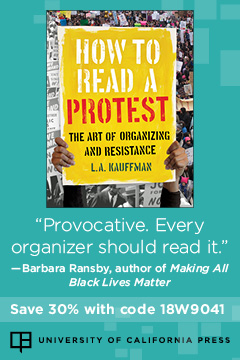
Ballot initiatives led to progressive victories in unlikely places. The left should use them more often.

Contrary to Trumpian fantasy, noncitizens didn’t get a direct say in the midterms. But their voices still mattered on Election Day.

Socialist parties emerged as dynamic, powerful forces at the turn of the twentieth century. After decades of decline, can they revive themselves in the twenty-first?

The Democrats’ midterm triumphs in Nevada would not have been possible without Culinary Workers Union Local 226.

To preserve their minority rule, Republicans will keep putting up barriers to voting. The only solution is to deepen democracy.

From Florida to Washington, a new generation of progressive candidates and social movements are closing the democratic deficit on climate change.

The rezoning of northern Manhattan has exposed the failings of New York City’s top-down housing program, which puts the profits of landlords and developers over the rights of tenants.

The demand for genuine full employment broadens our imagination of what a federal government committed to caring for its people would look like.

Meg Reilly of the Campaign Workers Guild joins us to talk about the first movement to unionize the workers who canvass the streets, run the phone banks, and carry the clipboards.

Reeducation camps, mosque monitoring, an extensive network of security checkpoints—these are just a few features of the surveillance apparatus China is developing to police Uyghur Muslims. A report from Xinjiang.

Under Xi Jinping, the Chinese Communist Party has reembraced Marx. But Xi’s state Marxism is a top-down attempt to unify the population behind a nationalist ideology, not to inspire class struggle.

If there’s one thing worth taking away from the White House report on socialism, it’s that economics is a political argument, not just a technical exercise.
























![Rated Agency | Zone Books [Advertisement]](http://web.archive.org./web/20181115142659im_/https://www.dissentmagazine.org/wp-content/uploads/useful_banner_manager_banners/3-ZoneBooks-online_Feher-Oct_2018-footer-banner-666x100.jpg)